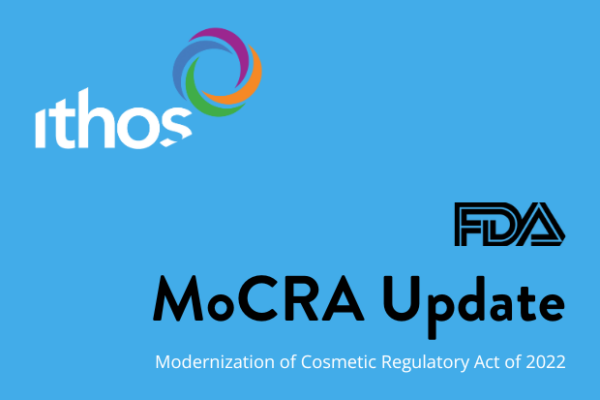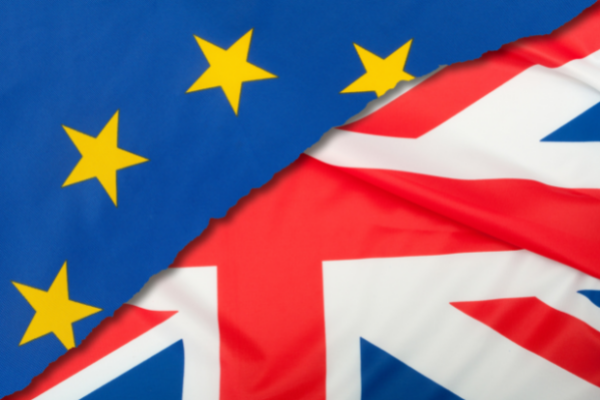Last Updated on June 4, 2022 by Ithos Global Regulatory Team

Starting a new makeup line may seem like a straightforward and almost fool-proof endeavor. The industry is thriving, with a global makeup market currently valued at $5.87 billion USD and forecast to nearly double in sales by 2023. And the cosmetic industry remains largely unaffected by fluctuations in the economy, so logic – and history – indicate that launching a new makeup brand should be a resounding success for any company looking to enter the space. How to start a makeup line? Make a business plan, find a few suppliers, generate an eye-catching logo, connect with investors, create the initial market offering, and voila – you have created your own makeup line.
Unfortunately, it is not quite that easy. Cosmetic products may be thriving, but they are also one of the most tightly regulated commodities on the market. Cosmetic manufacturers of all sizes are held to a stringent set of compliance standards designed to ensure product safety. Both US and EU cosmetic regulations place the responsibility for compliance squarely on the shoulders of the manufacturer, so even small cosmetic companies need to have a regulatory plan and strategy in place to ensure compliance and avoid unnecessary and unforeseen expenses. But with careful attention to compliance details, even small manufacturers can easily solve the regulatory puzzle, bringing all the pieces together and clearing the pathway to successful commercialization.
How to Start a Makeup Line? How Much Will it Cost?
The initial research and information-gathering on how to start a makeup line may not cost anything, but there are quite a few expenses that will need to be covered well in advance of creating the first batch of product. These expenses may vary slightly by product and by production location, but a small-scale makeup business should budget between $17,500 and $62,550 in up-front expenses, including (but not limited to):
Establishing legal business entity and other legal fees
Brand website and logo
Licenses, permits and insurance
Signage, advertising, business cards
Rental or purchase of office and/or lab and production facilities
Ingredients and other materials to create product
Packaging and Labeling requirements
Regulatory Compliance
Miscellaneous
The total upfront expense can climb to over $150,000 for a medium-sized makeup brand, and large name-brand or luxury niche companies can spend several million dollars to start a new line. However, this list does not include any expenses that may be incurred while achieving necessary regulatory compliance of the production facility, ingredients, final formula and packaging so that will need to be taken into consideration when determining how much it will cost to start a makeup line.
Define the New Product Development Process
New companies may balk at the idea of allocating precious capital on compliance, but non-compliance can cost a company much more in product reformulations, product artwork revisions, documentation changes and fines, and in order to sell a product, it has to be compliant. Whether an organization has 15 employees or 15,000, establishing the compliance needs for each phase of the new product development process early on will keep the new makeup line fully compliant and on budget as it moves from ideation to commercialization.
To help keep costs in line and compliance front-of-mind, cosmetic companies of all sizes should clearly define each stage of their new product development process. A clearly defined process will ensure that everyone within the organization knows what deliverables need to be completed for each stage, who is responsible for what deliverable, and – more importantly – what the compliance requirements are for each phase of the process. You can access more information here on the cost of compliance versus non-compliance in the Cosmetic industry.
There are six key stages – or gates – in the new product development process:
The marketing brief contains the market analysis for a proposed product, defines the initial product concept, and identifies the
targeted niche for the product.
The product formulation lists the ingredients used to create the cosmetic product and must take into consideration any ingredient restrictions for each targeted jurisdiction.
Sourcing of ingredient suppliers also has a regulatory component. Any third-party supplier must be able to demonstrate
compliance with good manufacturing practices (GMP) and provide documentation of compliance for any ingredients they supply.
Regulatory & Quality Compliance should be part of the development process from the very start. The EU requires the designation of an assigned person to be the regulatory and technical contact, and this person has oversight of the entire regulatory compliance process.
Packaging/Artwork is also guided by regulatory requirements that define what must be included on a product label, including
product name, performance claims, name and address of the assigned person, and any necessary precautions and warnings.
Product Validation serves to substantiate the safety and any performance claims for the product, while ensuring that the
formulation produces no adverse effects.Microbiological, Product Stability and Safety testing should be completed as is appropriate for the product and formula. In most jurisdictions, animal testing is prohibited or severely restricted, so testing must be completed
with human test subjects (as allowed) or via other approved methods.
Understanding U.S. Cosmetic Regulations
Cosmetic manufacturers are responsible for ensuring the safety of their products and compliance with all local, regional or international standards. The regulations may seem overwhelming to a startup trying to determine exactly how to start a makeup line, but the strict standards help maintain the quality of the products, resulting in very few cosmetic adverse events.
In the United States, both federal and state governments have detailed cosmetic regulations guiding the introduction of a new cosmetic product. The Federal Food, Drug, and Cosmetic Act (FD&C Act) and the Fair Packaging and Labeling Act (FPLA) are the two most
important pieces of legislation pertaining to cosmetic products sold in the U.S. with oversight of product safety, labelling and the restriction of ingredients. The FDA does not require cosmetics gain pre-market clearance or mandate specific product validation analysis, but their regulations do provide for routine inspection of manufacturing facilities. In addition, FDA regulations prohibit or restrict the use of several ingredients and require warning statements on the labels of certain types of cosmetics.
Several states have also implemented their own regulations further restricting the use of some ingredients, and California’s Prop 65 has had far-reaching impact on the industry and manufacturers looking to market their products in the state.
Understanding EU Cosmetic Regulations
European Union cosmetic regulations are like those in the U.S. in that they ensure product safety but are much more stringent and require much more documentation overall from manufacturers before a product can be released to the market.
Regulations (EC) N° 1223/2009 and No 655/2013 are the primary pieces of EU legislation for cosmetic products sold on the European market. These standards clarify the rules for product labelling, define the substantiation of product claims, establish requirements for the product information file (PIF) and mandate the designation of an assigned person to be the primary regulatory and technical contact for the product. 1223/2009 also implemented a comprehensive ban on the testing of ingredients and finished cosmetics on animals, so cosmetic manufacturers must rely on alternative testing methods to validate the safety of their products.
EU member states often enact their own laws regarding cosmetics, so it is recommended that all cosmetic manufacturers fully research the regulations for each targeted jurisdiction defined in the marketing brief to ensure that the product will be compliant when released to the market.
Bringing it All Together
Starting your own makeup line can be exhilarating and demanding, requiring the development of new skills in order to successfully bring a product to market. The costs can seem steep, the compliance process overly complex and the myriad other challenges can cause an unprepared makeup brand to lose their way. For those determined to understand how to start a makeup line successfully, making the investment in compliance can lead to commercial and financial success.




